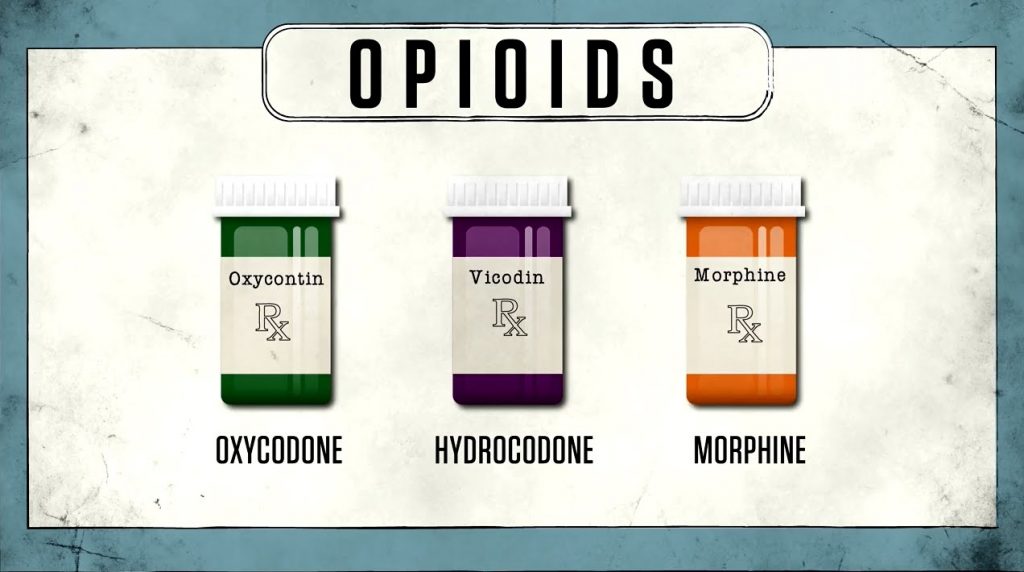The Opioid Crisis Evolves As Drug Companies Are Held Accountable and New Treatments Emerge
As drug companies and their executives have amassed huge fortunes during the opioid crisis, 200,000 people have died in the last 20 years.


As drug companies and their executives have amassed huge fortunes during the crisis, more than 200,000 people have died of opioids in the last 20 years. Many more victims have grappled with how to best deal with addiction.
On Detroit Today with Stephen Henderson, we discuss how the narrative is turning against companies supplying opioids and the difficult road to recovery for former addicts.
“I think it’s going to be one of many inflection points,” but “I don’t know if you’ll ever see a Sackler in handcuffs.” – Lenny Bernstein, reporter
Lenny Bernstein, health reporter for the Washington Post, says a growing tide of criticism and legal judgements against pharmaceutical companies is having an effect.
The Sackler family got rich selling the widely abused painkiller OxyContin. Now, they’re in negotiations with more than 2,000 cities, counties, states, and other organizations — including several from here in Metro Detroit — that sued their company Purdue Pharma. Those governments and entities accuse the company and the Sackler family of starting and perpetuating the opioid crisis.
Reports last week revealed Purdue Pharma is offering $10 to 12 billion to settle the lawsuits. Under the settlement proposal, the Sacklers would give up control of their company and turn it into a trust. The main purpose of that trust would be to combat the opioid crisis. But according to a report from the Washington Post, the family will likely hold on to the fast fortune they amassed marketing and selling the drugs.
“I think it’s going to be one of many inflection points” when it comes to the end of the opioid crisis as a public health menace, says Bernstein. But “I don’t know if you’ll ever see a Sackler in handcuffs. That would be way way down the road if it ever happens.”
He notes that other pharmaceutical company executives have been charged in relation to the opioid crisis.
“We are putting care recovery coaches in emergency rooms” – Darlene Owens, Wayne County Health Authority
Darlene Owens, director of substance use disorders and initiatives for Detroit Wayne County Health Authority, says that medical-based interventions, that are not abstinence-only, are growing in popularity in southeast Michigan.
Treatments that use narcotics or other drugs to stop cravings are shrouded in stigma. Sometimes that stigma comes from other groups that seek to help people kick their addictions. Twelve step programs and others that promote abstinence-only methods for addressing addiction are often the ones with little tolerance for medication assisted treatment (MAT).
When we think of MAT, we often think of methadone clinics. But there are numerous drugs that are proven safe and effective in treating opioid addiction. Grant funding for these treatments are growing, Owens says.
“We are putting care recovery coaches in emergency rooms,”‘ says Owens.
Although stigma against those kinds of drug-assisted treatment methods persists, people who work in the field of addiction treatment are seeing some changes in attitudes. That includes more acceptance from many law enforcement organizations, as well as individuals who have struggled with addiction themselves.
“I was using a lot of prescription pills, It was just the desperation on the inside of me.” – Bryce R. Cobb III, former addict
Bryce R Cobb III, is a former addict who has been sober since July 27, 2013.
“I was using a lot of prescription pills, It was just the desperation on the inside of me,” says Cobb. “The thing that was on the inside of my mind was ‘I’m a shell of a man.”
Cobb says it took five or six times reaching out to people for help before he was able to connect with treatment. In that case, it was a 12-step program that helped him get sober. He is currently taking classes to become a state certified peer recovery mentor, and says his attitudes toward MAT have changed since learning more about that kind of treatment.
